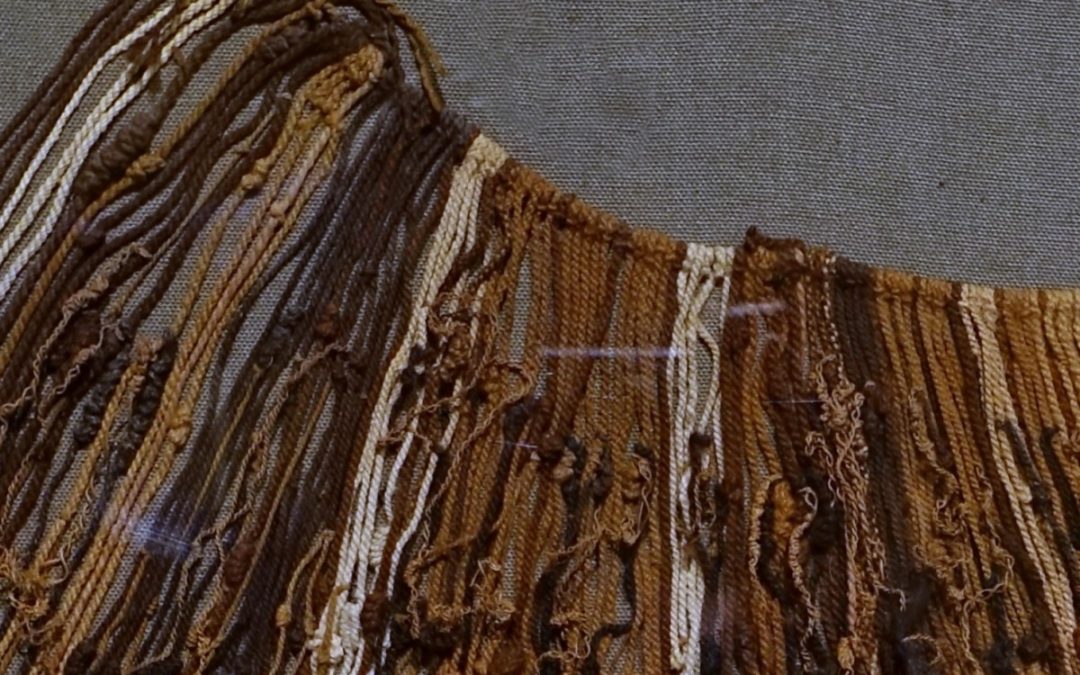
by Richard Subber | Jun 13, 2023 | American history, Books, History, Politics, Power and inequality
the men in gray went AWOL
Book review:
Bitterly Divided: The South’s Inner Civil War
by David Williams
New York: The New Press, 2008
310 pages
Wow! Bitterly Divided is a game-changing perspective on the causes and conduct of the American Civil War.
Read this compellingly researched book by David Williams to get the details.
Some highlights:
About a half million black and white Southerners served in the Union army, about 25% of the total number of men in arms wearing blue uniforms.
There was substantial opposition to secession in every state that seceded. Politicians and rich slaveholders literally corrupted the elections to make secession happen.
In the latter years of the war, at any given time as many as two-thirds of the common soldiers in the Confederate army were absent with or without leave. General Lee worried persistently about deserters.
The Confederate armed forces always had enough ammunition, but the soldiers and their wives and families at home never had enough food—because rich plantation owners insisted on planting the more profitable tobacco and cotton crops.
The Civil War was fought about slavery—because the big slaveholders refused to give up their source of free labor.
* * * * * *
Book review. Copyright © Richard Carl Subber 2023 All rights reserved.
Book review: “Bartleby, the Scrivener”
Here is loneliness beyond understanding…
by Herman Melville
–
Seeing far: Selected poems with 47 free verse and haiku poems,
and the rest of my poetry books are for sale on Amazon (paperback and Kindle)
and free in Kindle Unlimited, search Amazon for “Richard Carl Subber”
* * * * * *

by Richard Subber | Mar 30, 2023 | American history, Book reviews, Books, History, Politics, Power and inequality
Tell yourself the truth…
Book review:
Upheaval: Turning Points for Nations in Crisis
by Jared Diamond (b1937)
New York: Little, Brown and Company, 2019
Diamond’s Guns, Germs, and Steel won a Pulitzer Prize in 1998.
502 pages.
Diamond delivers a knock-out with every one of his books. Upheaval is no exception.
Diamond fully backs up his frank and frightening assessment of the United States in its current crises.
America and Americans have many strengths, including our geographic stronghold and our democratic traditions. We’re facing many fault lines, not least of which is our increasingly paralyzing political polarization and refusal to embrace sensible compromise to get good things done for all Americans. Repeat for effect.
Upheaval is not a feel-good book. It is a call to action, with a credible road map and many reasons to fear our failure to face up to our crises.
* * * * * *
Book review. Copyright © Richard Carl Subber 2023 All rights reserved.
Book review: Shakespeare’s Wife
Germaine Greer went overboard a bit…
–
As with another eye: Poems of exactitude with 55 free verse and haiku poems,
and the rest of my poetry books are for sale on Amazon (paperback and Kindle)
and free in Kindle Unlimited, search Amazon for “Richard Carl Subber”
* * * * * *

by Richard Subber | Mar 15, 2023 | American history, Book reviews, Books, History, Power and inequality
guns and germs…
Book review:
1491:
New Revelations of the Americas Before Columbus
by Charles Mann
New York: Vintage Books, 2011
1491 offers everything you never knew about civilized people in the Americas before the Europeans arrived and killed most of them (OK, many died in battle, but it was European diseases, mostly). Maybe close to 100 million “native” people died within 100 years or so of the “discovery” by Columbus…but hold on, this book is not about Wounded Knee-type criticism or ex post facto self-flagellation.
In 1491, Mann beautifully describes the marvelous sophistication of cultures, cities, agriculture, arts, and science that blossomed in North America, Central America, and South America thousands of years ago, in many cases predating achievements and growth and civilization in Europe.
Yes, the Incas never used the wheel except for children’s toys.
Yes, the Mississippian city of Cahokia was a bustling port and a trading center with population equal to Paris in France—and that was 500 years before Columbus sailed.
Yes, the Olmec culture in what is now Mexico invented the zero whole centuries before mathematicians in India did the same.
My recollection of schoolboy learning about the history of the Americas is that the dates and events were tied to discovery and conquest and colonization by Europeans. The implication was that, before the white men with guns, germs and steel arrived, nothing much was going on in whole continents characterized more by “virgin land” and “endless wilderness” than by people who had agriculture, city life, art, trade, commerce, religion, science, kings, and philosophers.
Mann offers 1491: New Revelations of the Americas Before Columbus. For me, the joy of reading this book is learning about the multiplicity of cultures that flourished in the Americas, and learning how they tamed and managed and very greenly conserved their environment…and for me, the sad revelation of this book is understanding that the peoples of the Americas were human beings whose achievements were noble and notable, and yet, lamentably, their cultural legacies are largely lost and the losses are barely mourned.
In 1533 Pizarro and his conquistadors at Cuzco precipitated the decline of the 300-year-old Inca empire in Peru. Fifty years later, the Spanish colonial administrators in Peru ordered the burning of all the Incan “khipu” knotted string records because they were “idolatrous objects.” Khipu were the Incas’ only form of writing. The smoke from the burning of their books gets in your eyes, forever and ever.
* * * * * *
Book review. Copyright © Richard Carl Subber 2023 All rights reserved.
Book review: The Sea Runners
…it informs, it does not soar…
by Ivan Doig
–
Above all: Poems of dawn and more with 73 free verse poems,
and the rest of my poetry books are for sale on Amazon (paperback and Kindle)
and free in Kindle Unlimited, search Amazon for “Richard Carl Subber”
* * * * * *

by Richard Subber | Mar 10, 2023 | Book reviews, Books, History, Politics, Power and inequality, World history
an informed passivity…
Book review:
The Last European War:
September 1939-December 1941
by John Lukacs
New Haven, CT: Yale University Press, 1976.
This is a typical scholarly Lukacs work, with high clarity insights and no inhibitions about expressing his informed critique of the work of other historians.
Lukacs illuminates the events, the leadership and the popular sentiments of national populations during the period leading up to the start of World War II and the initial conflict prior to the entry of the United States into the war in December 1941. I point to the word “national” to note the emphasis explained by Lukacs in The Last European War, based on his interpretation that national sentiments were of paramount importance in shaping both the popular reaction to war and the popular attitudes toward the conflict.
A strong impression: The people and leaders who were living through this turmoil had only marginal appreciation of the effectiveness and impact of their actions. Nevertheless, the Nazis’ rise to power was significantly facilitated by the passivity (an informed passivity, not a state of ignorance) of too many individuals who didn’t advocate a morally-framed opposition.
* * * * * *
Book review. Copyright © Richard Carl Subber 2023 All rights reserved.
Book review: Saint Joan
by George Bernard Shaw
–
Seeing far: Selected poems with 47 free verse and haiku poems,
and the rest of my poetry books are for sale on Amazon (paperback and Kindle)
and free in Kindle Unlimited, search Amazon for “Richard Carl Subber”
* * * * * *

by Richard Subber | Feb 5, 2023 | Book reviews, Books, Human Nature, Power and inequality
it’s not about rational choices…
Book review:
What’s Wrong with Economics?
A Primer for the Perplexed
by Robert Jacob Alexander, Baron Skidelsky (b1939)
New Haven, CT: Yales University Press, 2020
223 pages
Skidelsky has written a powerfully convergent book about the origins and enduring nature of economics and the lamentably over-hyped concept of Homo economicus.
“Economic Man”—the human calculating machine that continuously, exclusively acts in the most rational way to achieve maximum value at minimum cost—exists only in the imaginations of economists who invented him to fit their equally fictitious models of human behavior and modern economic activity.
In a nutshell: “…the neoclassical model of rational behaviour based on fixed preferences, complete contracts, and ample relevant information is the wrong one.” (p. 90)
What’s Wrong with Economics? will help you understand what’s wrong with our current so-called capitalist system and the people, companies, and governments that it mostly benefits.
* * * * * *
Book review. Copyright © Richard Carl Subber 2023 All rights reserved.
The Reader (Der Vorleser)
Not just a rehash of WWII…
by Bernhard Schlink
–
Seeing far: Selected poems with 47 free verse and haiku poems,
and the rest of my poetry books are for sale on Amazon (paperback and Kindle)
and free in Kindle Unlimited, search Amazon for “Richard Carl Subber”
* * * * * *

by Richard Subber | Dec 26, 2022 | American history, Book reviews, Books, History, Politics, Power and inequality
money did a lot of the talking…
Book review:
The Founders’ Fortunes:
How Money Shaped the Birth of America
by Willard Sterne Randall
New York: Dutton, an imprint of Penguin Random House LLC, 2022
324 pages
Randall offers details about the wealth—and intermittent lack thereof—of a number of the so-called “Founding Fathers,” and how persistently those men looked out for their own financial interests throughout the Revolutionary era.
Presumptively you aren’t surprised to learn about these details.
There’s plenty more to learn when you read The Founders’ Fortunes.
The matter-of-fact point is that these men were looking out for themselves at the same time that they were creating the independent United States of America.
* * * * * *
Book review. Copyright © Richard Carl Subber 2022 All rights reserved.
Book review: An Empire Divided
King George and his ministers
wanted the Caribbean sugar islands
more than they wanted the 13 colonies…
by Andrew Jackson O’Shaughnessy
–
Seeing far: Selected poems with 47 free verse and haiku poems,
and the rest of my poetry books are for sale on Amazon (paperback and Kindle)
and free in Kindle Unlimited, search Amazon for “Richard Carl Subber”
* * * * * *





